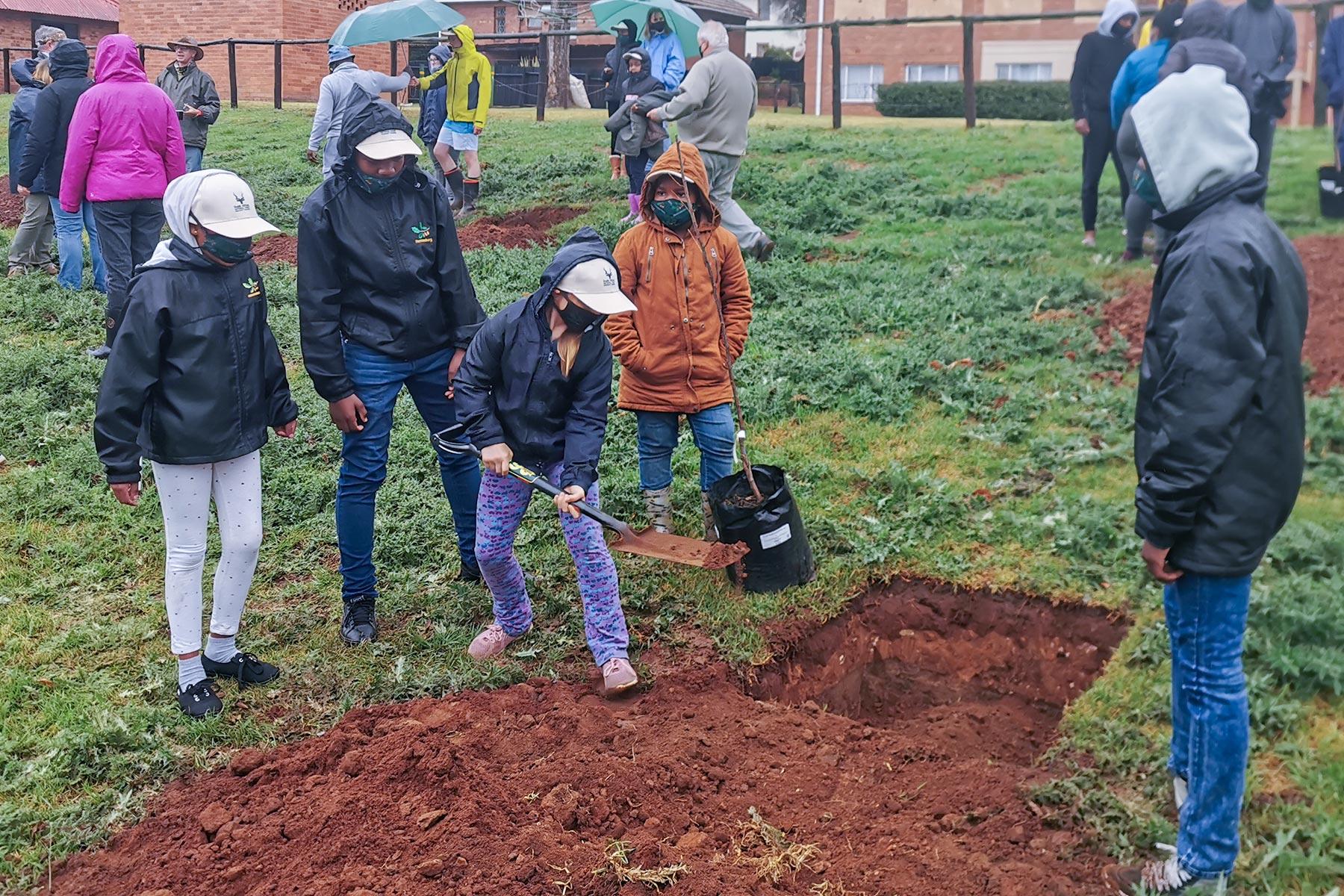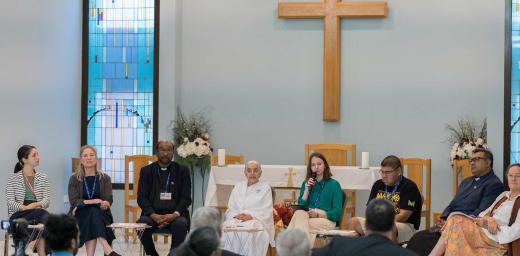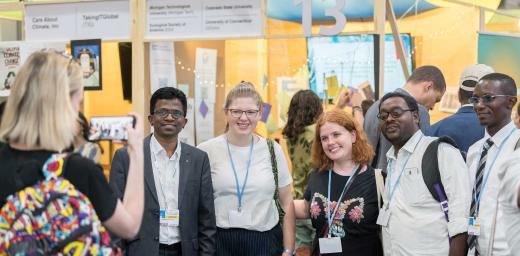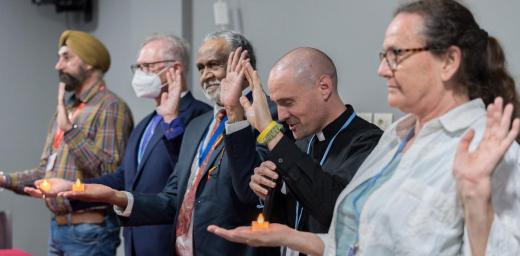South Africa: School children leading climate advocacy, food sustainability, and creation care

Pupils of Hermannsburg School in KwaZulu-Natal prepare the ground for tree planting. This climate project of the Northeastern Evangelical Lutheran Church in South Africa was supported by the LWF. Photo: HMB school
Striving for long-term sustainability and biodiversity
(LWI) – “This is not a short-term, once-off project. It will carry on for the coming years,” says Nathalie Hulett, coordinator of a youth climate project of the Northeastern Evangelical Lutheran Church in South Africa (NELCSA). The project was conducted at the church’s Hermannsburg School and supported by The Lutheran World Federation (LWF).
Hulett has previously advocated for climate justice and environmental care. In 2020 she was a contestant in the Miss Earth South Africa program, gaining first-hand experience and seeing “how important the environment was and getting involved.”
Hermannsburg School, where Hulett now is a teacher, is close to a very poor rural community in the KwaZulu-Natal Province on the East Coast of South Africa. The area is surrounded by commercial forests and many alien invasive plants that are destructive to the area’s ecology. “Our climate project focused on food sustainability and environmental awareness,” Hulett explains.
In the climate project, students of the boarding school and its Enviro Club, one of the extra-mural activities offered at the school, embarked on an awareness campaign. They informed the school community and the surrounding communities of the value of indigenous plants and vegetation, the value of sustainable long-term crops such as fruit trees, and teaching skills for sustainable vegetable gardening. Here, a specific focus lay on composting, soil erosion, and crop choice.
Gardening, composting, and recycling
To reduce the demand for commercially produced vegetables and transport, pupils created and managed organic gardens. For some of them, this was the first opportunity to learn about crop selection and gardening skills. The produce is used in the school’s kitchen, and some of it is shared with poor people in local communities.
The school has a good reputation for creating environmental awareness amongst its learners. With this project, the awareness spreads to the surrounding community.
Vegetable off-cuts, peels, and other kitchen waste are now used for composting with grass cuttings and leaves from the school grounds. “Our pupils were quite excited to be part of this and contribute to food security for future generations,” Hulett says.
To raise awareness of these cycles, pupils designed awareness posters during their life-orientation classes. “We intended to influence behavior and encourage environmental responsibility at our school positively,” Hulett explains.
Trees provide food and absorb carbon dioxide
Around Arbour Day in September 2021, students planted the South African trees of the year and fruit trees on the school grounds and in the surrounding areas of local communities. Subsequently, about 60 Sweet Thorn (Vachellia Karroo), 200 Spekboom (Portulacaria Afra), and ten fruit trees enrich the biodiversity there.
“Now, we can see the trees growing and bearing fruit,” says Hulett. “I also look forward to harvesting fruit from the trees and distributing them to the communities. However, because we wanted to get as much out of the budget as possible, we bought younger trees, and so we are going to only harvest our first fruits in the next two to three years.” The Spekboom trees will continuously provide oxygen and reduce carbon dioxide for years to come.
“I would recommend such projects to others as it is a great way to get youth involved in their communities,” says Hulett. “It encourages the youth to educate themselves and realize the problems in their area. I, for one, learned how important sustainability is generally and applied the idea of self-sustainability to our projects.”
NELCSA bishop, Dr. Horst Müller, strongly supports these activities: “The school has a good reputation for creating environmental awareness amongst its learners. With this project, the awareness spreads to the surrounding community. Also, since it involves a fairly large group of youngsters over a longer period, the chances of a long-lasting impact are excellent.”
By LWF/A. Weyermüller





